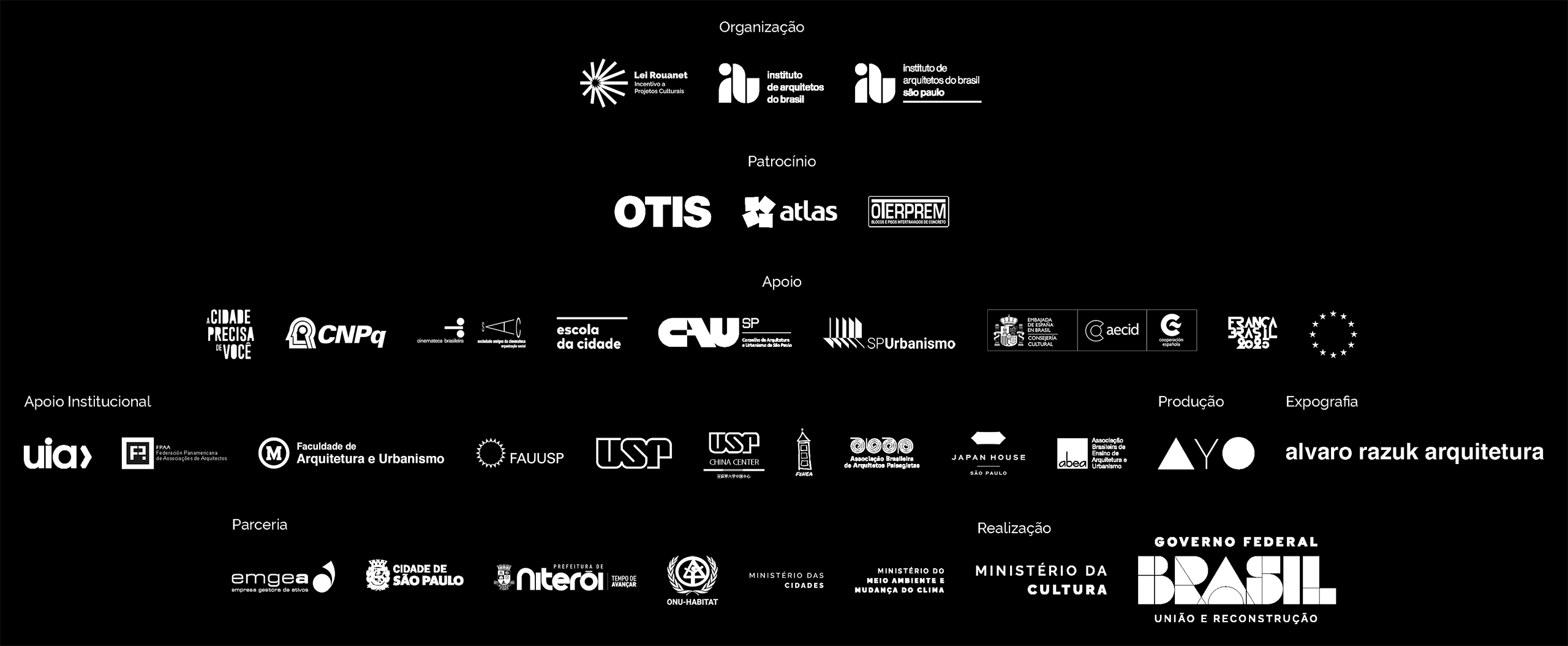Involvements
Before the exhibition, Envolvimentos aims to promote an opening of dialogue with social movements and diverse territories, converging on the exhibition of the 14th International Architecture Biennial of São Paulo, which begins on September 18th, at OCA, in Ibirapuera Park. Architects and leaders from villages, terreiros, riversides and peripheries will jointly investigate architectures to inhabit a hot world in debates that deepen the central ideas of the exhibition.
Actors involved in projects carried out in different territories and contexts that address issues such as coexistence with water and floods, safeguarding heritage, protecting and sustainably managing forests, urban agriculture, mechanisms for enabling low-impact lifestyles and recognizing nature as a subject of rights will be invited to dialogue. These are ways of inhabiting, building, perceiving, participating in and transforming the territory.
In May, the Envolvimentos project held a live launch with leaders of indigenous, riverside, terreiro and ecofeminist peoples in IABsp Youtube. After registration and selection, a group of 60 participants will be formed and, in July, will meet online to follow debates with leaders and architects and delve deeper into strategies and experiences around climate adaptation and mitigation, technologies and post-disaster actions.
For any questions, send an email to faleconosco@bienaldearquitetura.org.br.
Schedule (updated on 06/09/2025)
02.05
Registration for meetings begins
15.05
Launch Live
21.06
Registration for meetings ends
01.07
1st Involvement
Declare Emergency – Debate with guests
03.07
1st Involvement - Declare Emergency
Deepening
08.07
2nd Engagement - Mitigate
Debate with guests
10.07
2nd Engagement – Mitigate
Deepening
15.07
3rd Involvement – Adapt
Debate with guests
17.07
3rd Involvement – Adapt
Deepening
22.07
4th Involvement – Acting Post-Disaster
Debate with guests
24.07
4th Involvement – Acting Post-Disaster
Deepening
18.09 - 19.10
Displaying results on the website and at the OCA
1st Involvement - Declare Emergency
This first meeting discusses the role of architects in emergency response and disaster adaptation, both before and after events occur. It addresses living with risk, community preparedness, and interventions at urban and territorial scales.
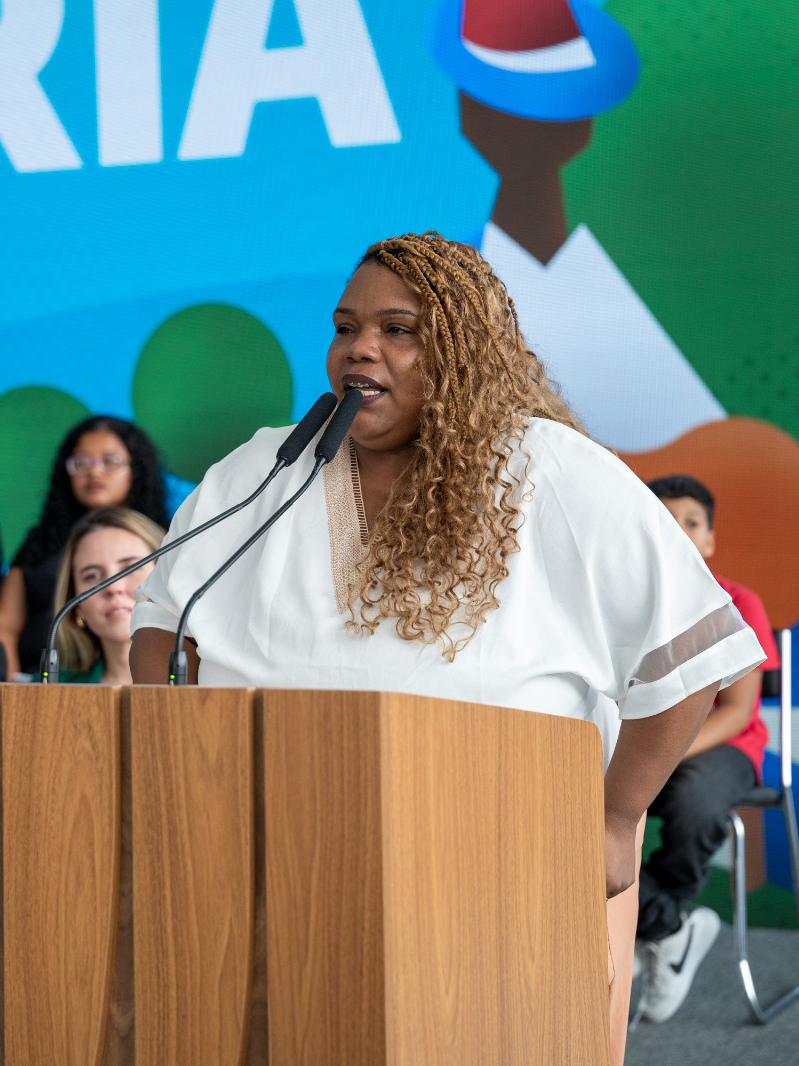
Joice Paixão
Joice Paixão
Associação Gris Espaço Solidário
Recife, PE, Brazil
Social scientist, researcher, social educator, conflict mediator, community therapist, Coordinator of Articulação Recife de Luta, operative of the Rede Nacional por Adaptação Antirracista, and territorial coordinator of the Rede de Governança para enfrentamento ao racismos ambiental. Co-founder and current president of the Associação Gris Espaço Solidário, which provides psychosocial support to children and families in vulnerable situations in the neighborhood of Várzea, in Recife.
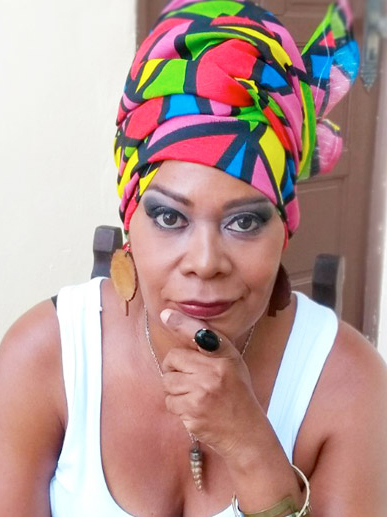
Maria Alice Pereira da Silva
Maria Alice Pereira da Silva
Morro da Pedra de Oxossi
Salvador, BA, Brazil
Lawyer, Master and PhD in Architecture and Urban Planning from UFBA (Federal University of Bahia), she is a member of the Instituto dos Advogados da Bahia and a consultant for OMPI. CEO of PX Assessoria, she works on integrating traditional knowledge and socio-environmental justice. Activist and guardian of Pedra de Xangô, she advocates for the protection of Morro da Pedra de Oxossi, a sacred site in Maraú (BA) with historical, cultural, religious, and environmental significance, currently at risk of being turned into a quarry.

Fernanda Accioly
Fernanda Accioly
Instituto Pólis
Sao Paulo, SP, Brazil
Architect and urban planner graduated from FAUUSP (Faculty of Architecture and Urbanism, University of São Paulo), with a master's, doctorate, and post-doctorate in Habitat and Urban and Regional Planning. She has extensive experience in municipal and federal public administration. She served as Executive Secretary of the Instituto Pólis, a civil society organization that collaborated with the local community to develop the Community Plan for Civil Defense and Climate Crisis Adaptation for the Caiçara community of Ponta Negra (RJ).
2nd Engagement - Mitigate
The second meeting focuses on mitigation and the appreciation of Indigenous ways of living, connected to local knowledge and the landscape. It also highlights the mapping of traditional knowledge and the promotion of intercultural gatherings and courses.
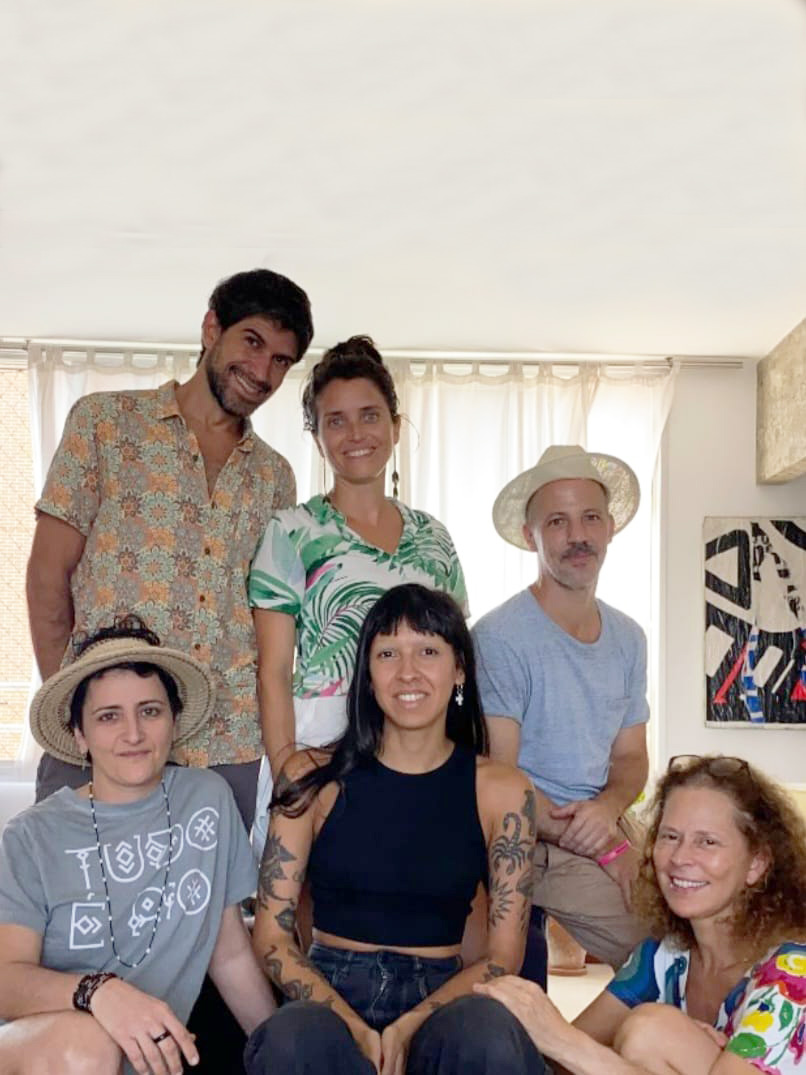
Casa Floresta
Casa Floresta
Sao Paulo, SP, Brazil
The Casa Floresta Association is a consulting and research center for architecture, urban planning, art and graphic design projects, which involves a network of indigenous and contemporary knowledge with the aim of strengthening traditional cultures and revitalizing territories where architecture and the forest coexist in balance. In addition to the Kamayurá Architecture Manual, Casa Floresta provided technical support for the Yudja Architecture Manual (Tuba Tuba Village – TIX, Mato Grosso) and, in partnership with the Architecture and Biosphere Platform of Escola da Cidade (SP), the Guarani Architecture Manual (TITenondé Porã).
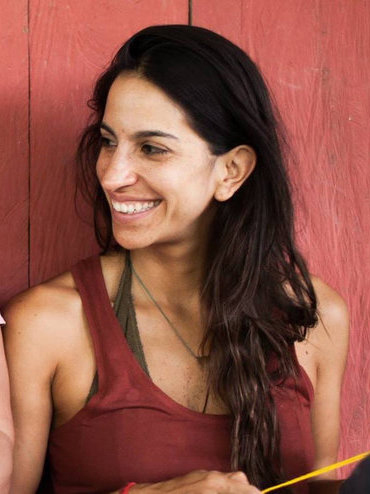
Ana Maria Gutierrez
Ana Maria Gutierrez
Fundación Organizmo
Cundinamarca, Colombia
Founder of Fundación Organizmo, an organization that fosters the exchange of knowledge and experimentation focused on social, cultural, and ecological regeneration. A pioneer in low-impact construction and alternative technologies in Colombia, she works at the intersection of education, ecological restoration, and intercultural dialogue. Her projects strengthen cultural identity, social cohesion, and the well-being of rural communities.

Sem Muros
Sem Muros
Sao Paulo, SP, Brazil
A network of architects working to strengthen their practice through architectural and educational projects, disseminating and expanding access to social and constructive technologies that promote the recognition of available resources and their potential for creating and caring for spaces. Architecture is understood not as an object but as a process. They advocate for an architecture that is socially, environmentally, culturally, and economically integrated.
3rd Involvement - Adapt
The third meeting discusses the use of biomaterials and waste to strengthen local autonomy and knowledge. It also addresses community training and the influence of rural and urban contexts on construction practices.

Leticia Grappi
Leticia Grappi
Salvador, BA, Brazil
Architect graduated from UFBA (Federal University of Bahia), she focuses on low-environmental-impact projects and construction. As lead architect, she designed and built a school and library in the João Amazonas Settlement in Ilhéus, Bahia. She served on the organizing committee of the TerraBrasil 2024 Congress, was a board member of the Rede TerraBrasil (2022-2024), technical reviewer for Gernot Minke's "Manual de Construção com Terra", co-creator of mapadaterra.org, and founder of the Mulheres na Bioconstrução group.

Ruína Arquitetura
Ruína Arquitetura
Sao Paulo, SP, Brazil
Ruína Arquitetura is an award-winning studio based in São Paulo, Brazil, which has distinguished itself by its focus on local context and low environmental impact. Throughout its trajectory, it has developed architectural projects for different scales and demands, as well as research laboratories and educational activities focused on the reuse of construction materials and waste. In 2024, the office closed its activities, giving rise to two independent initiatives: Anonima Arquitetura and Julia Peres.co.

Jose Fernando Gomez
Jose Fernando Gomez
Natura Futura
Babahoyo, Ecuador
Architect graduated from the Faculty of Architecture and Urbanism at the University of Guayaquil. Founder of Natura Futura Arquitectura, a practice developing socially focused projects using local materials and techniques. Notable work includes floating structures in flood-prone areas—from community gardens to housing—bridging traditional knowledge and innovation to empower rural and marginalized communities in facing climate change.
4th Involvement - Acting post-disaster
The fourth gathering examines the preservation of memory and cultural heritage in post-disaster contexts, while honoring spiritual dimensions of recovery. It critically reflects on how human interventions both generate catastrophes and intensify systemic inequalities.
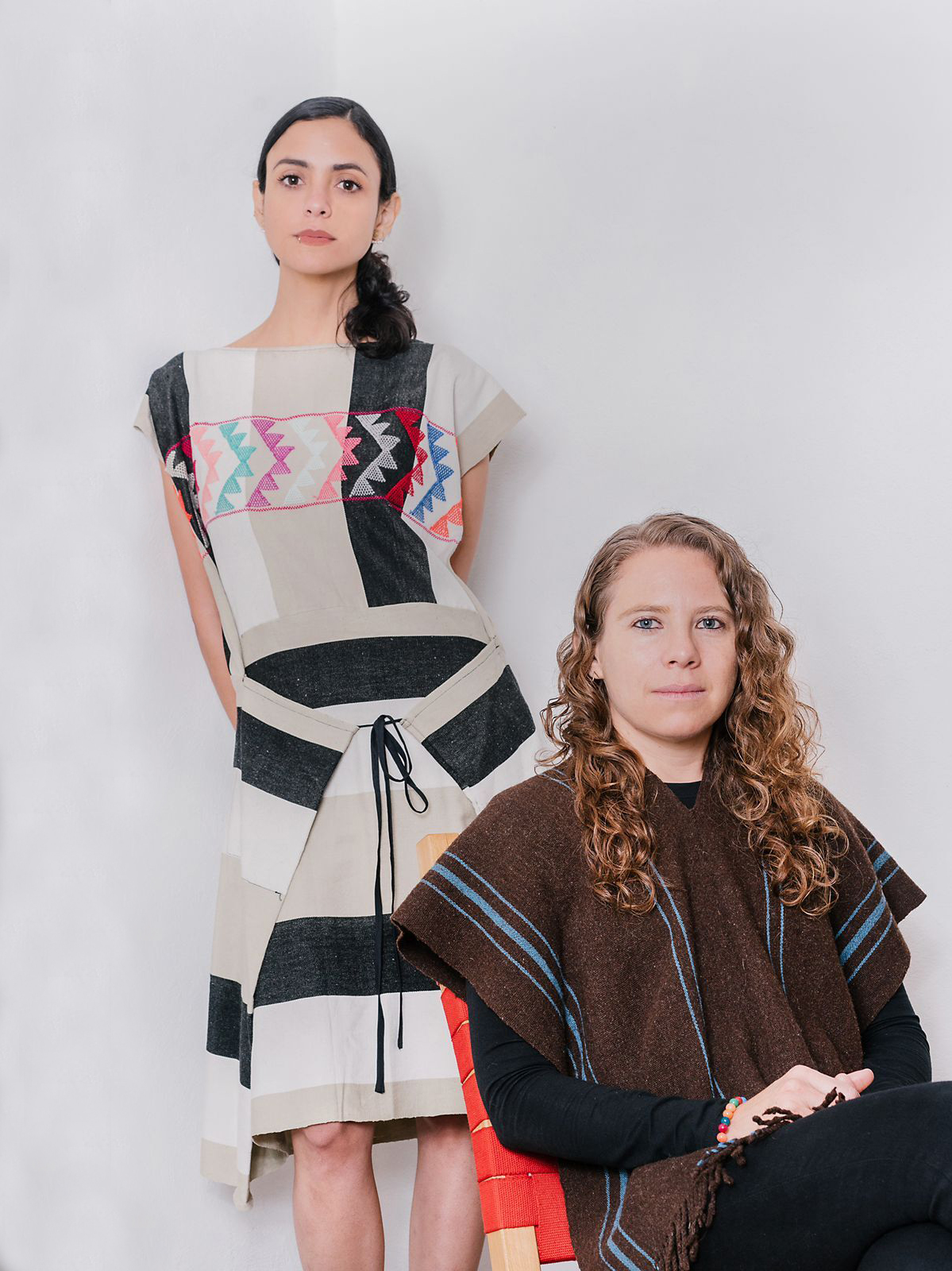
Comunal
Comunal
Cidade do México, Mexico
Founded by Mariana Ordóñez Grajales and Jesica Amescua Carrera, Comunal envisions architecture as a collaborative social process – living, open, and constantly evolving – with residents at the heart of decision-making. In communities affected by earthquakes, hurricanes, and floods, the studio has facilitated and guided social reconstruction processes, rebuilding not only homes but also local productive systems and community ties.
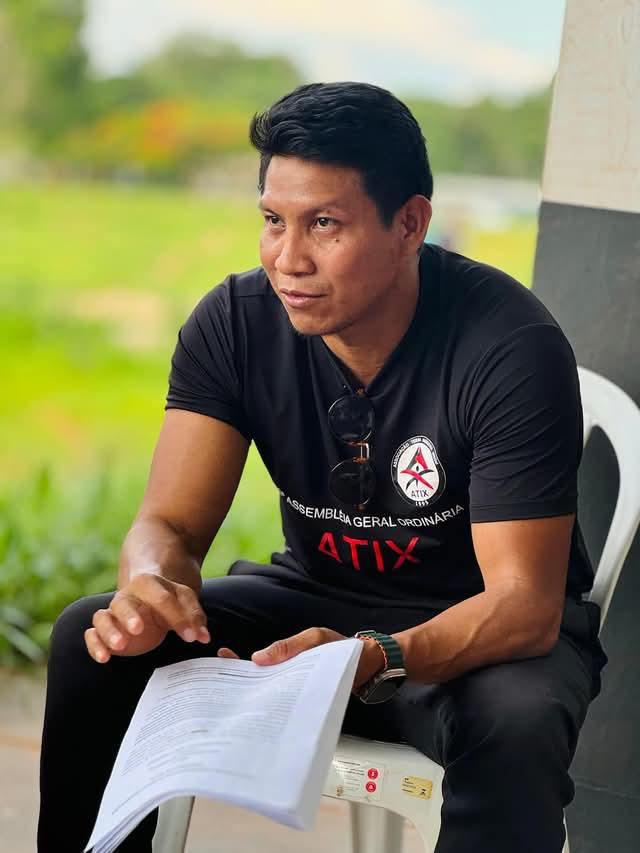
Ewesh Yawalapiti Waura
Ewesh Yawalapiti Waura
Associação Terra Indígena Xingu
Território Indígena do Xingu, MT, Brazil
Lawyer graduated from UFMT (Federal University of Mato Grosso) and Executive Director of the Associação Terra Indígena Xingu (ATIX). ATIX works to defend indigenous rights, protect territories, and promote the traditional cultures of the Xingu region. Ewésh, alongside the Waujá people, has been actively involved in protecting Kamukuwaká Cave—a sacred site for the Upper Xingu peoples and a heritage site recognized by Iphan (Institute of National Historical and Artistic Heritage). The cave suffered vandalism, and a replica was later installed within the Ulupuwene Village.
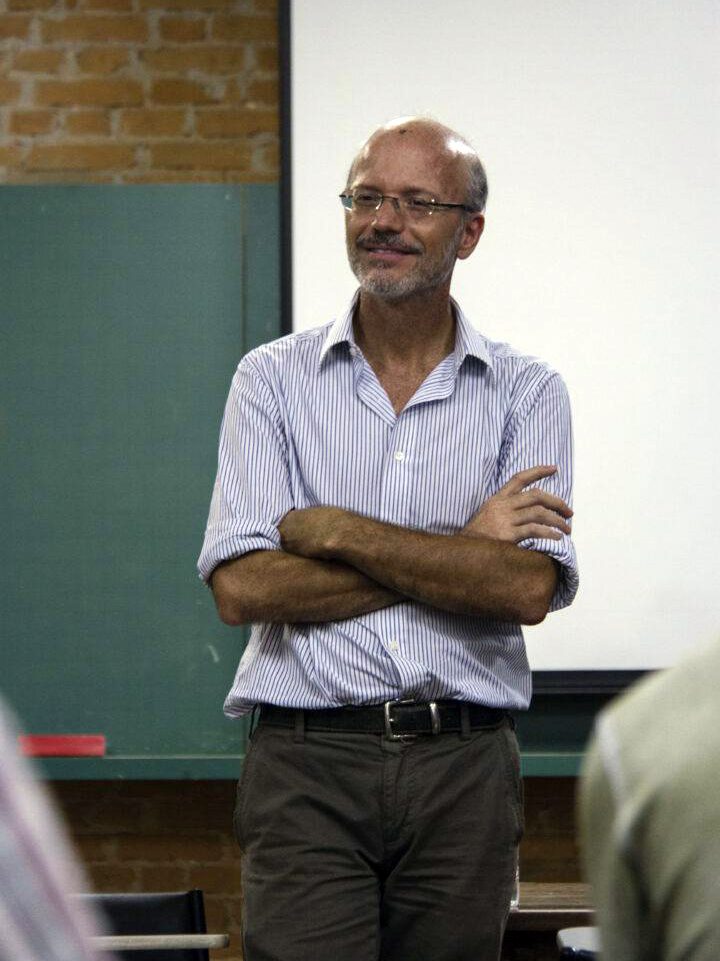
Luis Octavio de Faria e Silva
Luis Octavio de Faria e Silva
Frente Ilê Odé Ibualamo
Sao Paulo, SP, Brazil
Assistant Professor of Architecture and Urbanism at São Judas Tadeu University and researcher at Instituto Anima, with a PhD and Master’s degree from FAUUSP (University of São Paulo’s Faculty of Architecture and Urbanism). His work focuses on urbanism, housing, and ecological architecture. In 2022, he publicly denounced the demolition of the Ilê Asé Odé Ibualamo Candomblé terreiro in Carapicuíba (SP), carried out without community consultation as part of the Cadaval Stream canalization project.
Applications
To register, fill out the form available via the button below.
Sign up here.
Curation and mediation of meetings: Marcella Arruda and Marina Frúgoli
Production: Julia Delmondes
Realization: The City Needs You Institute and IABsp
Support: re:arc Institute
For any questions, send an email to faleconosco@bienaldearquitetura.org.br.


